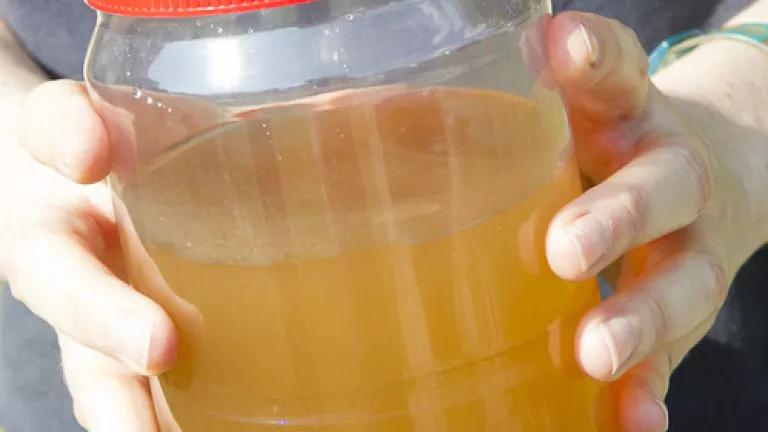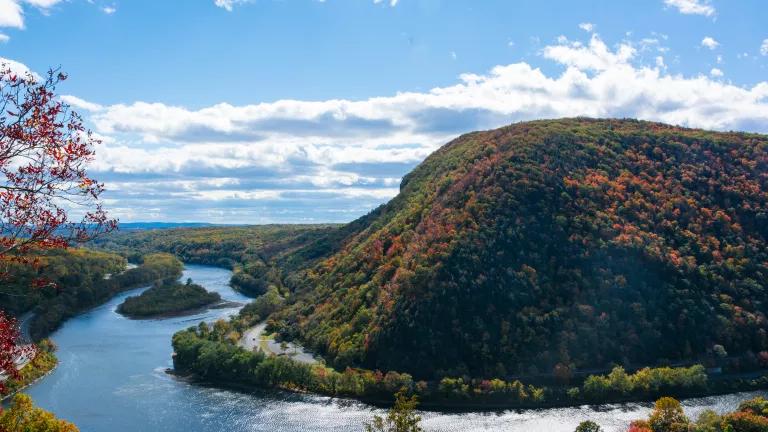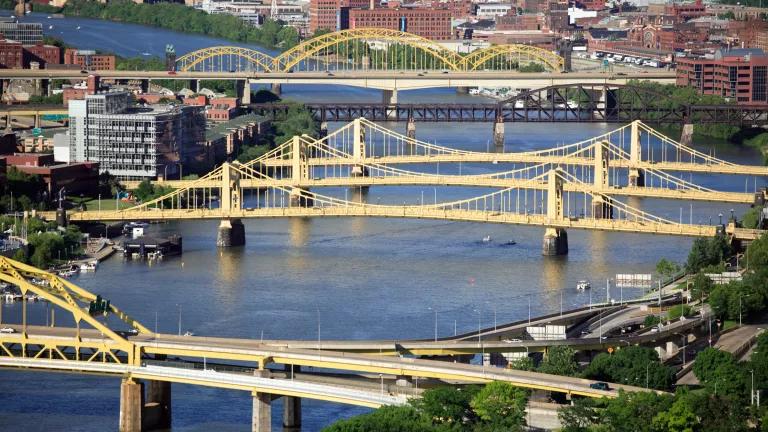
This fall I spoke to people in Pennsylvania who live next door to fracking operations. The question on nearly everyone’s mind was what fracking was doing to their drinking water. People have industrial drill pads and massive wastewater pits near their homes, and some have watched their tap water turn brown or catch fire. It’s not surprising they are concerned about the health and safety of their families.
And yet despite people’s pressing need to know if their water is safe, a Pennsylvania state agency has actively blocked residents from getting the full results of drinking water tests.
According to sworn testimony of the technical director for the Pennsylvania Bureau of Laboratories, the state Department of Environmental Protection uses a special coding system that hides two-thirds of the water quality information it gathers when it tests drinking water for fracking contamination.
When that code is applied, the reports generated for the homeowner only list eight out of 24 metals tested. That means people are being denied information about 16 metals the DEP examines, including aluminum, cadmium, chromium, and molybdenum. Exposure to low levels of these chemicals has been linked to kidney damage, digestive trouble, developmental problems, and cancer.
Wouldn’t you want to know if these metals were lurking in your tap water?
It’s unconscionable that the state officials tasked with keeping residents safe from environmental harm are hiding critical information. It would be like having a doctor say you are healthy because a test for diabetes came back clean, but refusing to tell us the tests for high blood pressure, heart disease, and stroke risk didn’t look so good.
Water from a Pennsylvania resident's tap. Photo credit: Melanie Blanding
People deserve a full picture of their health and safety risks, and they should be able to count on the DEP to give it to them. Yet when I spoke to people in Pennsylvania it became clear they feel abandoned by state officials. Time and again they have called for help when fracking operators ran roughshod over their communities only to have their concerns ignored.
This pattern is especially troubling when you realize the scale of fracking operations in Pennsylvania. NRDC recently created an interactive map of the thousands of wells blanketing the state. We tried to provide information about fracking chemicals and wastewater, but that data was not available for the vast majority of wells. The DEP had some additional information about each well, but you have to pay a substantial fee to get it.
It seems the DEP wants to impede the free flow of information at every turn. In September the agency declared field officers could no longer send letters about contaminated water directly to homeowners. They have to send them to the head office in Harrisburg instead. This means it could take longer for people to get important water quality results, and it will likely discourage state workers from declaring waters contaminated now that their superiors will be second-guessing their work.
Pennsylvania’s refusal to fully inform and protect its citizens reveals the urgent need for strong national fracking standards. All Americans should be safeguarded against dangerous chemicals and reckless operators regardless of what state they live in. That means strengthening national monitoring and disclosure laws, closing fracking loopholes in the Clean Air, Clean Water, and Safe Drinking Acts, and funding robust inspection and enforcement programs.
NRDC is working to secure those national standards. We also launched the Community Fracking Defense Project to help towns defend themselves when government agencies are either powerless or unwilling to address the dangers of fracking.
And right now, we are urging the state of Pennsylvania to release complete water testing information to all homeowners whose results may have been withheld. On Wednesday, we wrote a letter to Michael Krancer, Secretary of the PA Department of Environmental Protection, sharing our concerns. Because no one should be left wondering if their water is safe to drink—especially when state officials could help answer their questions.



